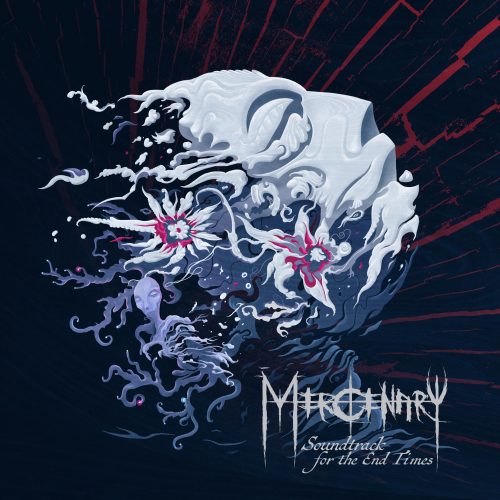
(Andy Synn catches up with a band who we haven’t checked in with in quite a while)
Change, as they say, is the one universal constant. But that doesn’t mean that change is always good. Or, at least, it’s not always perceived (or received) that way.
Case in point, following the departure of the Sandagger brothers in 2009 Mercenary were – rightly or wrongly – criticised for, ahem, metamorphosing from the distinctive Prog/Power/Death Metal hybrid they used to be into a more groove-focussed, Metalcore-ish “Nu-Melodeath” act in the vein of bands like Caliban, Deadlock, etc.
Much of the blame was placed, unfairly, on bassist (and now primary vocalist) René Pedersen – mostly, it seemed, because his singing style was supposedly less “epic” and more “emo” than his predecessor – even though the core guitar duo of Jakob Mølbjerg and Martin Buus (who have, at the time of writing this, now been playing together for over twenty years!) remained unchanged.
But the truth of the matter is that there was no one person responsible for the band’s downturn in fortunes, it’s simply that, for a while, they didn’t seem to know quite who they were, or who they wanted to be, any more.
But on their new album Mercenary sound more like… well, Mercenary… than they have in years!

Now, to clarify the above statement, you shouldn’t go into Soundtrack for the End Times expecting to hear a direct return to the sound of Everblack or 11 Dreams, but there are prominent aspects of this album which could easily have fit in with the band’s output circa-The Hours That Remain/Architect of Lies.
Take the high-energy intensity and high-voltage melodic hooks of “Through This Blackened Hatred”, for example, or the shameless Power-Prog grandeur (including some vivid synth and piano-led passages) of “Become the Flame”, both of which recapture much of the same spirit – if not always the exact sound – of the group’s glory days far more than anything else from the last decade or so of trying.
As good as those songs are, though – and I haven’t even touched upon how strong the back half of the album is overall, with both the ridiculously hooky “From the Ashes of the Fallen” and the throwback melodic/metallic thrills of “Black Heart, Dead Tissue” also recalling the best of the band’s post-millennial output – it’s also worth pointing out that even the band’s “Euro-Trivium” leanings on songs like “Heart of the Numb” and “Anthem for the Anxious” all sound significantly more vital and vibrant than the band’s earlier attempts at achieving a similarly stadium-friendly stature (though Heafy’s guest appearance on the former track barely makes a dent).
Of course, as much as I like this album – and I like it a lot more than I expected to, and will likely be listening to it a lot more over the coming months – there’s definitely things about it worth criticising, including its excessive run-time (there’s absolutely no need for it to be as long as it is, and quite a few songs could probably have been trimmed down – or even cut altogether – in order to craft a tighter, and stronger, record) and the fact that the group still sometimes feel like they’re trying to follow two different paths without fully committing to either.
That being said, the high points on this album – with stunning closer “Beyond the Waves” being probably the best example yet of how the modern incarnation of Mercenary are more than capable of recapturing that old magic without feeling like they’re just retreading old ground – far outweigh the occasional lows.
So even if it’s not the perfect “return to form” some fans may have been clamouring for, this is definitely – and thankfully – not the end of Mercenary. And that’s something worth celebrating.

Changes aren’t permanent but change is
– – Tom Fucking Sawmill, Rush